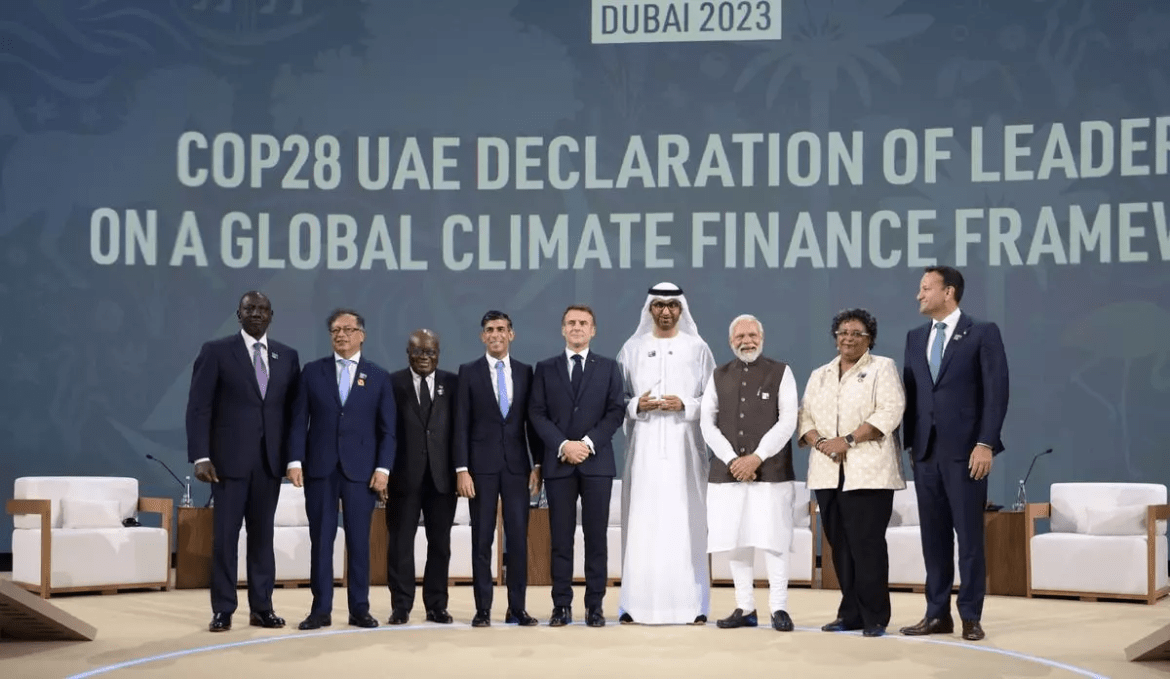AI Generated Summary
- In a bold move at the 28th Conference of the Parties (COP-28), Prime Minister Narendra Modi extended an invitation to the global community to converge in India for the 33rd edition of the annual summit scheduled for 2028.
- The proposal to host COP-33 and the advocacy for the “Green Credit initiative” reflect India’s dedication to fostering global cooperation in the face of one of the greatest challenges humanity has ever confronted.
- Addressing leaders and heads of state at the high-level segment of COP-28, Prime Minister Modi highlighted the severe impact of environmental degradation on the Global South, emphasizing that the consequences of a few nations’ selfish actions reverberate globally.
In a bold move at the 28th Conference of the Parties (COP-28), Prime Minister Narendra Modi extended an invitation to the global community to converge in India for the 33rd edition of the annual summit scheduled for 2028. PM Modi emphasized the urgent need for developed nations to “vacate the carbon space” by 2050, urging a collective responsibility to address the repercussions of environmental exploitation.
Addressing leaders and heads of state at the high-level segment of COP-28, Prime Minister Modi highlighted the severe impact of environmental degradation on the Global South, emphasizing that the consequences of a few nations’ selfish actions reverberate globally. He remarked, “A small part of humanity has ruthlessly exploited nature. But the entire humanity is bearing the cost of it, especially the inhabitants of the Global South. The selfishness of a few will lead the world into darkness, not just for themselves but for the entire world.”
Central to India’s approach in combating climate change is the “Green Credit initiative,” a non-commercial effort designed to create a carbon sink. The initiative aims to foster global collaboration in mitigating the environmental challenges that have far-reaching implications for all nations. PM Modi urged countries worldwide to join India in this collective effort, emphasizing the necessity of solidarity to combat the looming climate crisis.
Proposing to host COP-33 in 2028, PM Modi acknowledged the significance of gaining approval from fellow signatories to the United Nations Framework Convention on Climate Change (UNFCCC). Traditionally, the selection of future COP venues occurs two years in advance, making India’s proposition for 2028 a noteworthy departure from the norm.
If India were to host COP-33, it would mark the second time the country has undertaken this responsibility since 2002 when it hosted the 8th edition. The 2002 summit was characterized by relatively small ministerial delegations, but with the evolving urgency of climate action, the landscape of international climate conferences has transformed significantly.
As the world grapples with the increasingly dire consequences of climate change, India’s proactive stance at COP-28 signals a commitment to shaping a sustainable and equitable future. The proposal to host COP-33 and the advocacy for the “Green Credit initiative” reflect India’s dedication to fostering global cooperation in the face of one of the greatest challenges humanity has ever confronted. The world now waits to see how nations will respond to India’s call for collective action and whether the proposal to host COP-33 in 2028 will garner the necessary support from the international community.




